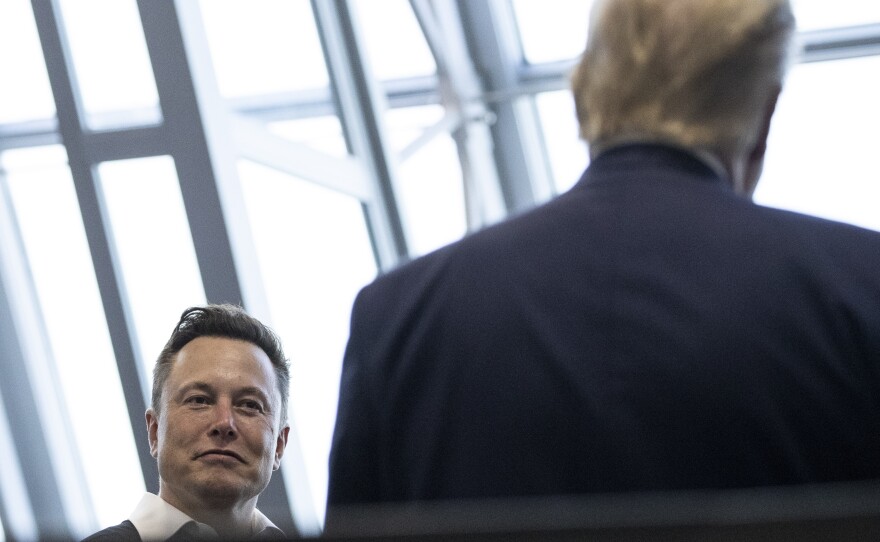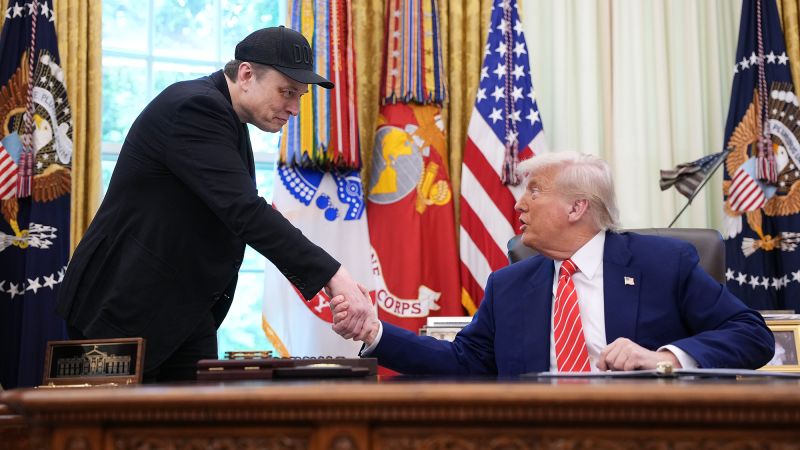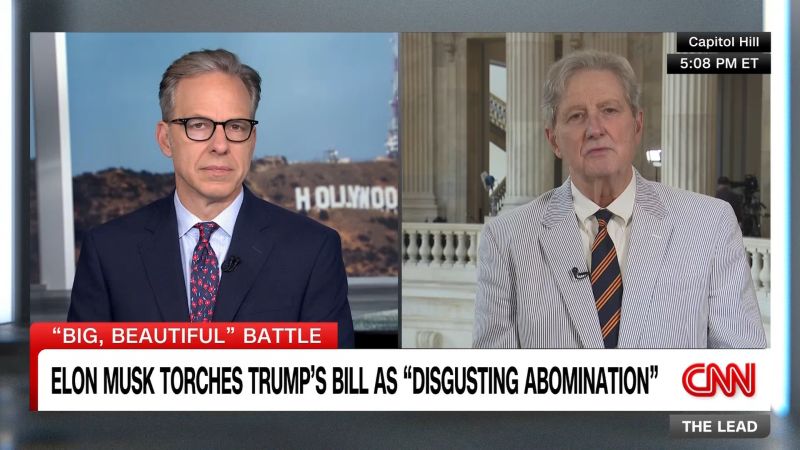Elon Musk and Donald Trump Engage in Public Feud with Mutual Accusations and Claims

A once-celebrated alliance between former US President Donald Trump and tech magnate Elon Musk has dramatically unraveled into a bitter and highly public feud, with both men trading increasingly personal and damaging accusations. The conflict, erupting over disagreements on fiscal policy and administration decisions, marks a stark reversal from their previous collaboration, sending ripples through political and financial spheres.
Previously, Musk had been a significant supporter of Trump, contributing approximately $288 million to his campaign and other Republican candidates, making him the largest individual donor in the 2024 election cycle. Following Trump's victory, Musk was appointed to head the newly created Department of Government Efficiency (DOGE), tasked with identifying and cutting wasteful federal spending. Their relationship was characterized by public displays of camaraderie, with Musk even being dubbed Trump's 'First Buddy'.
The primary catalyst for their falling out was Musk's staunch opposition to Trump's signature legislation, variously referred to as the "Big Beautiful Bill" or the "One Big Beautiful Bill Act." Musk vehemently criticized the bill for its projected $2.4 trillion addition to the national debt over the next decade, deeming it a "disgusting abomination" and contrary to his cost-cutting efforts at DOGE. Musk's tenure at DOGE ended shortly after his criticisms became public; Trump claimed he asked Musk to leave because he was "wearing thin," while Musk insisted his 130-day term as a special government employee had simply concluded and his departure was unrelated to their disagreements over the bill.
President Trump retaliated sharply to Musk's criticisms. He alleged Musk's opposition stemmed not from fiscal concerns but from personal grievances, including the administration's decision to roll back electric vehicle (EV) mandates—which Trump claimed would cost Musk "billions and billions of dollars" for Tesla—and the rejection of Musk's nominee to lead NASA, a position potentially beneficial to SpaceX. Trump further escalated tensions by publicly threatening to terminate Musk's lucrative government subsidies and contracts, stating it would be the "easiest way to save money in our Budget."
Elon Musk responded with a barrage of equally potent allegations. He claimed Trump would have lost the 2024 election without his support and accused the president of ingratitude. Most explosively, Musk alleged on his social media platform X that Trump's name appears in the files related to convicted sex offender Jeffrey Epstein, suggesting this was why the files hadn't been fully publicized. Musk also predicted Trump's tariffs would trigger a recession and, at one point, agreed with a post calling for Trump's impeachment, suggesting Vice President J.D. Vance as a replacement. Furthermore, he initially threatened to decommission SpaceX's Dragon spacecraft, a critical component for NASA's astronaut transport to the International Space Station.
The feud played out extensively on social media, with Trump using Truth Social and Musk utilizing X to trade barbs. Trump dismissed Musk's election claims, stating he would have won key states regardless. Musk, in turn, posted past remarks from Trump warning against growing deficits, questioning where that fiscally conservative stance had gone.
Amidst the escalating conflict, there were some attempts at de-escalation. Billionaire hedge fund manager Bill Ackman publicly pleaded on X for the two men to reconcile for the country's benefit, to which Musk responded, "You're not wrong." Following advice from an X user to "cool off," Musk retracted his threat to decommission the Dragon spacecraft, posting, "Good advice. Ok, we won’t decommission Dragon." Reports also surfaced that White House aides were organizing a crisis call between Trump and Musk to smooth over the fallout.
The public spat had immediate consequences, with Tesla's stock price experiencing a significant drop. The feud also drew reactions from various political figures. Trump's former advisor Steve Bannon fiercely criticized Musk, calling him an "unstable individual" and a "national security issue," suggesting the government seize SpaceX under the Defense Production Act and even initiate deportation proceedings against the naturalized US citizen. Conversely, Republican Congressman Thomas Massie defended Musk's fiscal concerns, stating he trusted Musk's financial acumen over that of D.C. politicians and hoped Musk would remain engaged in politics, particularly in primary elections.
The contentious "Big Beautiful Bill," passed by the House and under Senate consideration, was estimated by the nonpartisan Congressional Budget Office to add $2.4 trillion to the national debt and result in millions losing health insurance. Musk argued against its vast spending, contrasting it with the billions DOGE had reportedly saved, and advocated for a "slim and beautiful bill" instead of what he perceived as a "mountain of disgusting pork."
This very public and acrimonious breakup signifies the end of a notable, if short-lived, political "bromance." The deeply personal nature of the attacks, from Epstein allegations to threats against multi-billion dollar government contracts, highlights a severe fracture that may have lasting implications for both Musk's enterprises and the political landscape.










